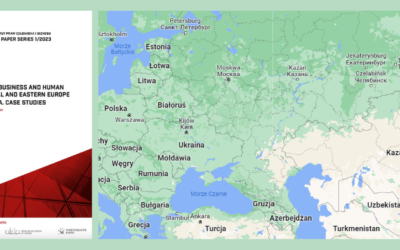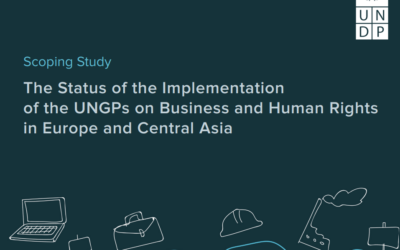Zgodnie z Wytycznymi ONZ dot. biznesu i praw człowieka (UNGPs) należyta staranność w zakresie praw człowieka (HRDD) to proces stosowany do identyfikacji i określenia, unikania, łagodzenia i dokumentowania konsekwencji działalności przedsiębiorstw w sferze praw człowieka. Mowa tutaj zarówno o skutkach pojawiających się obecnie, jak i o potencjalnych, mogących zaistnieć w przyszłości. Jednym z najważniejszych elementów należytej staranności w zakresie praw człowieka jest realne, konstruktywne zaangażowanie we współpracę z interesariuszami, zwłaszcza z właścicielami praw, do których należą pracownicy firmy, lokalne społeczności, pracownicy zatrudnieni w łańcuchu dostaw i konsumenci.
Na proces należytej staranności w obszarze praw człowieka (HRDD) składają się cztery podstawowe elementy: identyfikacja i ocena zaistniałych lub potencjalnych negatywnych konsekwencji dla realizacji praw człowieka, które przedsiębiorstwo może wywoływać lub w których wywoływaniu pośrednio albo bezpośrednio uczestniczy; podejmowanie stosownych działań i wdrażanie wniosków z oceny wpływu do procesów firmy; monitorowanie skuteczności podjętych działań w celu określenia, na ile naprawdę się sprawdzają; oraz komunikacja z interesariuszami m.in. poprzez raportowanie niefinansowe, na temat sposobów radzenia sobie z negatywnymi konsekwencjami działalności firmy dla praw człowieka oraz pokazywanie im, że firma wprowadziła i wprowadza odpowiednie mechanizmy i procesy.
Należyta staranność w zakresie praw człowieka (HRDD) pomaga firmom unikać wywierania negatywnego wpływu na realizację tych praw oraz podejmować działania mające zaistniałe sytuacje naruszeń minimalizować, a co za tym idzie zarządzać ryzykiem i reputacją. Przedsiębiorstwa, które niewłaściwie zarządzają ryzykiem w tej sferze napotykają na silny sprzeciw otoczenia, co może doprowadzić do utraty inwestycji zagranicznych i/lub do zamknięcia działalności.
Więcej informacji znajdziesz w znajdującym się w serwisie internetowym Business & Human Rights Resource Centre, portalu Human Rights Due Diligence Portal.
Materiał wideo [tylko w jęz. angielskim]: https://www.youtube.com/watch?v=pQaW3ZqPizU&ab_channel=TheDanishInstituteforHumanRights






